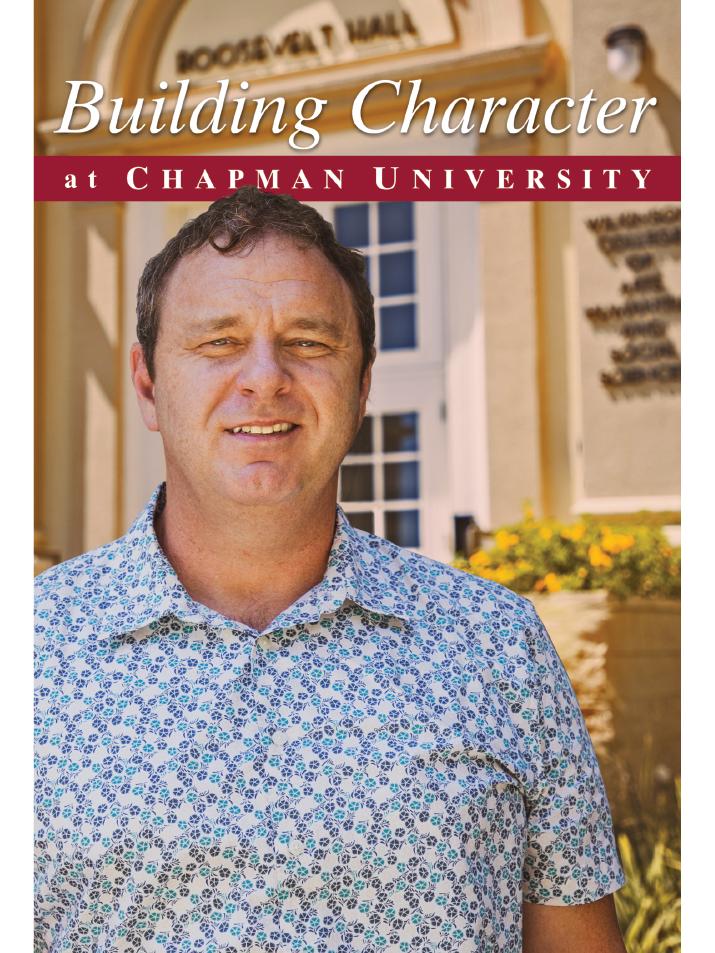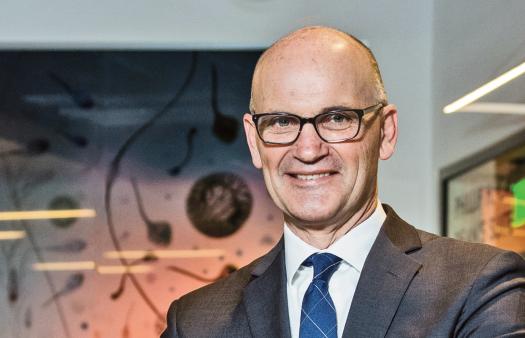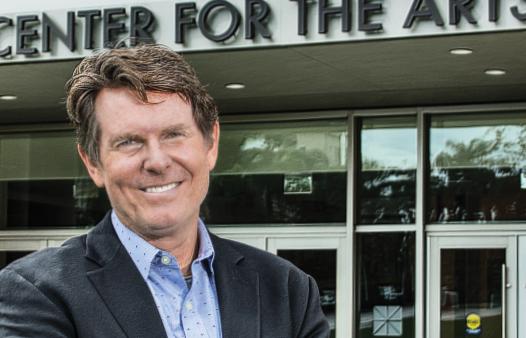
Ask many accomplished individuals at what point they had an epiphany pointing toward life purpose, and they will often describe those moments of clarity in great detail. In some cases, those turning points occur at a young age. Such is the case with sociologist Peter Simi.
“When I was five years old, the miniseries “Roots” aired for the first time on television,” says Chapman University’s Associate Professor, Wilkinson College of Arts, Humanities and Social Sciences; Department of Sociology. “I remember spending every night in front of the television the eight nights the show aired, profoundly impacted by what I saw.”
Early Revelations and Inspirations
The graphic depictions of the dehumanizing brutality of slavery in “Roots” greatly affected Simi. “I recall becoming sad and angry and crying during parts of the miniseries,” he says. Further life events throughout his childhood impacted Simi’s view. These included living in a racially diverse neighborhood in Sacramento and befriending an older African American boy. “Ken became a father figure to me, as my own father was ill and died when I was nine years old,” says Simi.
Despite the diversity in his neighborhood, on one occasion when Ken wasn’t present, some of the other children made racist jokes about him. That event and many more caused Simi to struggle to understand racially inspired hatred. When he moved from Sacramento to a more homogenous neighborhood in Vancouver, Washington, racial bias also caught his attention. “I will never forget when one of the kids in the first neighborhood we moved to started singing a horrifically racist nursery rhyme,” he says.
Simi’s awakened sensitivity and desire to understand how such perceptions come about led to his major in college. He studied sociology with a focus on criminology, earning a master’s and PhD, the latter of which he received in 2003.
Simi’s research uses an ethnographic approach to study the relationship between a person’s identity and resulting hate and potential for violence. Much of his time in graduate school he spent conducting field work. In particular, he stayed in the homes of various white supremacists to study them and their world views. He also taught sociology in the Nevada prison system for a time.
Understanding Racism
“I approached individuals active in white supremacist organizations such as the Ku Klux Klan in order to better understand them,” says Simi. “Some of them allowed me to spend time with them to get to know their world from their perspectives.”
These experiences allowed him to better understand how people tend to become involved with and indoctrinated into racists groups. He also gained a clearer view of the roots of racism and the phenomenon’s spectrum. “Racial hatred isn’t a uniform movement,” says Simi. “It includes a divergent set of participants.”
Simi has found from his work that society produces racism. “People aren’t born racist,” he says. “Racism is learned and is reflected in how we organize our society and economy. History also plays an integral part. Everything currently occurring in terms of protests and general unrest is rooted in what happened during the Reconstruction Era following the Civil War.”
Expert on Race Relations and Hate Crimes
Simi’s research has won grants from the U.S Department of Justice and the Department of Homeland Security. Over the years, he also earned a reputation as an expert on what motivates hate groups. Due to his expertise in the area of hate crimes, over the past 10 years, Simi has served as an expert witness in several high-profile cases. This includes testifying in February 2020 for the Multnomah County (Portland, Oregon) District Attorney’s Office in a double homicide hate crime case that led to the conviction of Jeremy Christian for killing two individuals and severely injuring a third on the city’s public transit system.
“My testimony in the case involved offering an opinion regarding Mr. Christian’s beliefs and motivations relevant to his criminal charges,” says Simi. “I am currently working on a civil case on behalf of the plaintiffs in a case related to the violence that occurred in Charlottesville at the Unite the Right event where Heather Heyer was murdered. The plaintiffs, all of whom were injured in some capacity during the event, are attempting to hold the organizers of the event responsible for the violence.” That case is scheduled to go to trial October 2020.
Simi is an Executive Committee member of the National Counterterrorism, Innovation, Technology and Education Center (NCITE). This university-driven research center, based at the University of Nebraska at Omaha, is committed to the scientific study of the causes and consequences of terrorism in the U.S. and around the world. He is also author of American Swastika: Inside the White Power Movement’s Hidden Spaces of Hate.
Joining Chapman University
Simi joined Chapman in the fall of 2016, moving from a position at the University of Nebraska, where he was an Associate Professor of Criminology for 13 years. That position included teaching criminology and about hate crimes and domestic terrorism.
“I applied for the position at Chapman and was really impressed with the university when I came for an interview,” he says. “I’ve enjoyed being at Chapman and in Southern California. When I taught my first undergraduate sociology class, I was so impressed with the high quality of the students at the university, and the same goes for the faculty and staff.”
The feeling is mutual for Simi’s Chapman colleagues. “I am deeply grateful that Pete is at Chapman and that he does the work that he does,” says Stephanie Takaragawa, Associate Dean and Associate Professor of Sociology, Wilkinson College of Arts, Humanities, and Social Sciences. “I’ll admit I was a little skeptical about him when I learned he lived with white supremacists as a researcher, but I’ve since come to understand that this is part of what makes him such an outstanding sociologist. He truly does try to understand everyone’s point of view and what makes them tick.”
Takaragawa believes Simi’s work over the last two decades is of paramount importance to helping us understand what is happening in the world today.
“Race relations in the U.S. and elsewhere in 2020 has demonstrated a need for a close examination of why racial intolerance persists and what is at stake with conflating whiteness (or race) with nationalism,” she says. “Pete’s work on white supremacy has provided much needed insight into perpetuation of the alt-right, extremist and hate groups.”
Chapman University President Daniele Struppa echoes Takaragawa’s sentiments.
“Pete works on hate groups and tries to understand how they are formed and the characteristics of their members in an effort to devise ways to help people leave those groups,” says Struppa. “I wish I could say this is just interesting research, but unfortunately, I must say it is extremely timely research. Important, significant and necessary. He is a wonderful teacher and great partner for us in administration as we try to understand how the university should respond to the hate groups that occasionally target the institution and its students. He is very smart, committed, extremely knowledgeable and courageous.”



